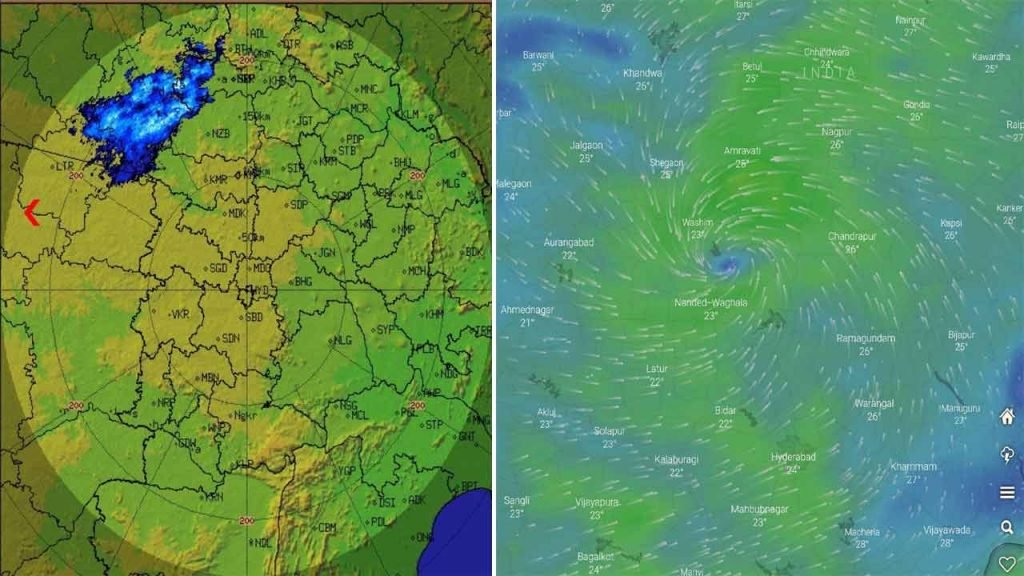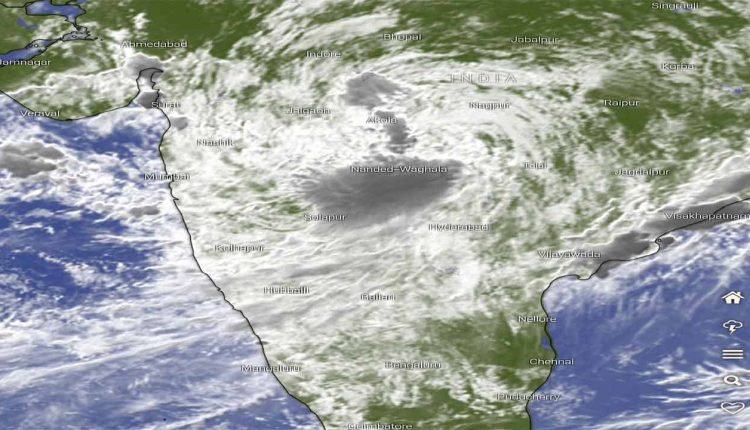Hyderabad, Sept. 28 : Clouds formed due to cyclone Gulab have changed direction and are moving out of north
Telangana.
Depression over North Telangana and adjoining Vidarbha moved west-northwestward with a speed of 24
kmph during the last six hours. It lay centered over Telangana and adjoining areas of Marathwada and
Vidarbha near Latitude at 5.30 am on Tuesday.
It is likely to move west-northwestwards and weaken into a Well Marked Low-Pressure Area during the next
6 hours, the Indian Meteorological Department (IMD) said.
Cyclone Gulab :
IMD has changed the weather warning from red to yellow. IMD said that heavy rain is very likely to occur at
isolated places in Nirmal, Nizamabad, and Kamareddy districts of Telangana. Thunderstorms accompanied
by lightning are very likely to occur at isolated places over Telangana.
IMD said that the system is likely to emerge into the northeast Arabian Sea and adjoining the Gujarat coast
around September 30 evening and there is a likelihood for the system to further intensify over the northeast
Arabian Sea during the subsequent 24 hours.
IMD said squally wind with a speed of 35-45 kmph gusting to 55 kmph is likely to prevail over North
Telangana and adjoining districts of Marathwada and Vidarbha during the next 6 hours.
The forecast for Hyderabad is that there will be generally cloudy sky. Light to Moderate
Rain/Thundershowers is very likely to occur in the city.
Who Named Cyclone Gulab ?
Tauktae, Amphan, Fani, Titli, Bulbul, Gaja… And now Gulab. As and when cyclones with intriguing names approach the Indian coasts, a common question comes to our minds: who names these storms?
Every Hindi and Urdu speaker would understand that the word ‘Gulab’ (pronounced as Gul-Aab) means Rose. And Pakistan, not India, proposed this name! Similarly, the previous cyclone that hit the east coast of India, Cyclone Yaas, was named as per the proposal from Oman.
But, why do Pakistan and Oman get to name cyclones that hit India? Countries surrounding a particular basin name the storms originating in that basin, usually years before they even form! And therefore, all the 13 countries sharing the Indian Ocean basin have already provided a long list of 169 names, with each country proposing 13 names. The names are chosen one after the other from this list, approved by the World Meteorological Organisation (WMO).

Now you can get latest stories from Indtoday on Telegram everyday. Click the link to subscribe. Click to follow Indtoday Facebook page and Twitter and on Instagram. For all the latest Hyderabad News updates

